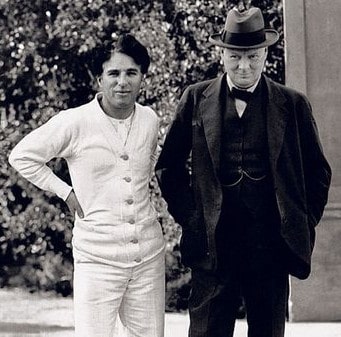Review:
Men at Arms, by Terry Pratchett
| Series: |
Discworld #15 |
| Publisher: |
Harper |
| Copyright: |
1993 |
| Printing: |
November 2013 |
| ISBN: |
0-06-223740-3 |
| Format: |
Mass market |
| Pages: |
420 |
Men at Arms is the fifteenth Discworld novel and a direct plot
sequel to
Guards! Guards!. You could
start here without missing too much, but starting with
Guards!
Guards! would make more sense. And of course there are cameos (and one
major appearance) by other characters who are established in previous
books.
Carrot, the adopted dwarf who joined the watch in
Guards! Guards!,
has been promoted to corporal. He is now in charge of training new
recruits, a role that is more important because of the Night Watch's new
Patrician-ordered diversity initiative. The Watch must reflect the ethnic
makeup of the city. That means admitting a troll, a dwarf... and a woman?
Trolls and dwarfs hate each other because dwarfs mine precious things out
of rock and trolls are composed of precious things embedded in rocks, so
relations between the new recruits are tense. Captain Vimes is leaving
the Watch, and no one is sure who would or could replace him. (The reason
for this is a minor spoiler for
Guards! Guards!) A magical weapon
is stolen from the Assassin's Guild. And a string of murders begins,
murders that Vimes is forbidden by Lord Vetinari from investigating and
therefore clearly is going to investigate.
This is an odd moment at which to read this book.
The Night Watch are not precisely a police force, although they are moving
in that direction. Their role in Ankh-Morpork is made much stranger by
the guild system, in which the Thieves' Guild is responsible for theft and
for dealing with people who steal outside of the quota of the guild. But
Men at Arms is in part a story about ethics, about what it means to
be a police officer, and about what it looks like when someone is very
good at that job.
Since I live in the United States, that makes it hard to avoid reading
Men at Arms in the context of the current upheavals about police
racism, use of force, and lack of accountability.
Men at Arms can
indeed be read that way; community relations, diversity in the police
force, the merits of making two groups who hate each other work together,
and the allure of violence are all themes Pratchett is working with in
this novel. But they're from the perspective of a UK author writing in
1993 about a tiny city guard without any of the machinery of modern
police, so I kept seeing a point of clear similarity and then being
slightly wrong-footed by the details. It also felt odd to read a book
where the cops are the heroes, much in the style of a detective show.
This is in no way a problem with the book, and in a way it was helpful
perspective, but it was a strange reading experience.
Cuddy had only been a guard for a few days but already he had absorbed
one important and basic fact: it is almost impossible for anyone to be
in a street without breaking the law.
Vimes and Carrot are both excellent police officers, but in entirely
different ways. Vimes treats being a cop as a working-class job and is
inclined towards glumness and depression, but is doggedly persistent and
unable to leave a problem alone. His ethics are covered by a thick layer
of world-weary cynicism. Carrot is his polar opposite in personality:
bright, endlessly cheerful, effortlessly charismatic, and determined to
get along with everyone. On first appearance, this contrast makes Vimes
seem wise and Carrot seem a bit dim. That is exactly what Pratchett is
playing with and undermining in
Men at Arms.
Beneath Vimes's cynicism, he's nearly as idealistic as Carrot, even though
he arrives at his ideals through grim contrariness. Carrot, meanwhile, is
nowhere near as dim as he appears to be. He's certain about how he wants
to interact with others and is willing to stick with that approach no
matter how bad of an idea it may appear to be, but he's more self-aware
than he appears. He and Vimes are identical in the strength of their
internal self-definition. Vimes shows it through the persistent, grumpy
stubbornness of a man devoted to doing an often-unpleasant job, whereas
Carrot verbally steamrolls people by refusing to believe they won't do the
right thing.
Colon thought Carrot was simple. Carrot often struck people as
simple. And he was. Where people went wrong was thinking that simple
meant the same thing as stupid.
There's a lot going on in this book apart from the profiles of two very
different models of cop. Alongside the mystery (which doubles as pointed
commentary on the corrupting influence of violence and personal weaponry),
there's a lot about dwarf/troll relations, a deeper look at the
Ankh-Morpork guilds (including a horribly creepy clown guild), another
look at how good Lord Vetinari is at running the city by anticipating how
other people will react, a sarcastic dog named Gaspode (originally seen in
Moving Pictures), and Pratchett's usual
collection of memorable lines. It is also the origin of the
now-rightfully-famous Vimes boots theory:
The reason that the rich were so rich, Vimes reasoned, was because
they managed to spend less money.
Take boots, for example. He earned thirty-eight dollars a month plus
allowances. A really good pair of leather boots cost fifty dollars.
But an affordable pair of boots, which were sort of OK for a season or
two and then leaked like hell when the cardboard gave out, cost about
ten dollars. Those were the kind of boots Vimes always bought, and
wore until the soles were so thin that he could tell where he was in
Ankh-Morpork on a foggy night by the feel of the cobbles.
But the thing was that good boots lasted for years and years. A man
who could afford fifty dollars had a pair of boots that'd still be
keeping his feet dry in ten years' time, while the poor man who could
only afford cheap boots would have spent a hundred dollars on boots in
the same time and would still have wet feet.
This was the Captain Samuel Vimes 'Boots' theory of socioeconomic
unfairness.
Men at Arms regularly makes lists of the best Discworld novels, and
I can see why. At this point in the series, Pratchett has hit his stride.
The plots have gotten deeper and more complex without losing the funny
moments, movie and book references, and glorious turns of phrase. There
is also a lot of life philosophy and deep characterization when one pays
close attention to the characters.
He was one of those people who would recoil from an assault on
strength, but attack weakness without mercy.
My one complaint is that I found it a bit overstuffed with both characters
and subplots, and as a result had a hard time following the details of the
plot. I found myself wanting a timeline of the murders or a better recap
from one of the characters. As always with Pratchett, the digressions are
wonderful, but they do occasionally come at the cost of plot clarity.
I'm not sure I recommend the present moment in the United States as the
best time to read this book, although perhaps there is no better time for
Carrot and Vimes to remind us what good cops look like. But regardless of
when one reads it, it's an excellent book, one of the best in the
Discworld series to this point.
Followed, in publication order, by
Soul Music. The next Watch book
is
Feet of Clay.
Rating: 8 out of 10
 Japanese authors have a tendency to commit suicide, it seems. I have read
Japanese authors have a tendency to commit suicide, it seems. I have read  Considered as Dazai s master piece, and with Soseki s Kokoro the best selling novels in Japan. The book recounts the life of Oba Yozo, from childhood to the end in a mental hospital. The early years, described in the first chapter ( Memorandum ), are filled with the feeling of differentness, alienation from the rest, and Oba starts his way of living by playing the clown, permanently making jokes. The Second Memorandom spans the time to university, where he drops out, tries to become a painter, indulges in alcohol, smoking and prostitutes, leading to a suicide attempt together with a married woman, but he survived. The first part of the Third Memorandom sees a short recovering due to his relationship with a woman. He stops drinking and works as cartoonist, but in the last part his drinking pal from university times shows up again and they return into an ever increasing vicious drinking. Eventually he is separated from his wife, and confined to a mental hospital.
Very depressing to read, but written in a way that one cannot stop reading. The disturbing thing about this book is that, although the main actor conceives many bad actions, we feel somehow attached to him and feel pity for him. It is somehow a exercise how circumstances and small predispositions can make a huge change in our lives. And it warns us that each one of us can easily come to this brink.
Considered as Dazai s master piece, and with Soseki s Kokoro the best selling novels in Japan. The book recounts the life of Oba Yozo, from childhood to the end in a mental hospital. The early years, described in the first chapter ( Memorandum ), are filled with the feeling of differentness, alienation from the rest, and Oba starts his way of living by playing the clown, permanently making jokes. The Second Memorandom spans the time to university, where he drops out, tries to become a painter, indulges in alcohol, smoking and prostitutes, leading to a suicide attempt together with a married woman, but he survived. The first part of the Third Memorandom sees a short recovering due to his relationship with a woman. He stops drinking and works as cartoonist, but in the last part his drinking pal from university times shows up again and they return into an ever increasing vicious drinking. Eventually he is separated from his wife, and confined to a mental hospital.
Very depressing to read, but written in a way that one cannot stop reading. The disturbing thing about this book is that, although the main actor conceives many bad actions, we feel somehow attached to him and feel pity for him. It is somehow a exercise how circumstances and small predispositions can make a huge change in our lives. And it warns us that each one of us can easily come to this brink.
 Michael K hlmeier s recently released book Zwei Herren am Strand tells the fictive story of Charlie Chaplin and Winston Churchill meeting and becoming friends, helping each other fighting depression and suicide thoughts. Based on a bunch of (fictive) letters of a (fictive) private secretary of Churchill, as well as (fictive) book on Chaplin, the first person narrator dives into the interesting time of the mid-20ies to about the Second World War.
Michael K hlmeier s recently released book Zwei Herren am Strand tells the fictive story of Charlie Chaplin and Winston Churchill meeting and becoming friends, helping each other fighting depression and suicide thoughts. Based on a bunch of (fictive) letters of a (fictive) private secretary of Churchill, as well as (fictive) book on Chaplin, the first person narrator dives into the interesting time of the mid-20ies to about the Second World War.
 Chaplin is having a hard time after the divorce from his wife Rita, paired with the difficulties at the production of
Chaplin is having a hard time after the divorce from his wife Rita, paired with the difficulties at the production of  In January and February of 2016 I ran an Obnam user survey. I'm not a
statistician, but here is my analysis of the results.
Executive summary: Obnam is slow, buggy, and the name is bad. But
they'd like to buy stickers and t-shirts.
Method
I wrote up a long list of questions about things I felt were of
interest to me. I used Google Forms to collect responses, and exported
them as a CSV file, and analysed based on that.
I used Google Forms, even though it is not free software, as it was
the easiest service I got to work that also seemed it'd be nice for
people to use. I could have run the survey using
In January and February of 2016 I ran an Obnam user survey. I'm not a
statistician, but here is my analysis of the results.
Executive summary: Obnam is slow, buggy, and the name is bad. But
they'd like to buy stickers and t-shirts.
Method
I wrote up a long list of questions about things I felt were of
interest to me. I used Google Forms to collect responses, and exported
them as a CSV file, and analysed based on that.
I used Google Forms, even though it is not free software, as it was
the easiest service I got to work that also seemed it'd be nice for
people to use. I could have run the survey using  The comparison of Germany and Japan with respect to their recent history as laid out in Buruma s book throws a spotlight on various aspects of the psychology of German and Japanese population, while at the same time not falling into the easy trap of explaining everything with difference in the guilt culture. A book of great depth and broad insights everyone having even the slightest interest in these topics should read.
The comparison of Germany and Japan with respect to their recent history as laid out in Buruma s book throws a spotlight on various aspects of the psychology of German and Japanese population, while at the same time not falling into the easy trap of explaining everything with difference in the guilt culture. A book of great depth and broad insights everyone having even the slightest interest in these topics should read.
 In accordance with its constitution, the Debian Project has just elected
Javier Merino Cacho as Debian Project Leader. More than 80% of voters put
him as their first choice (or equal first) on their ballot papers.
Javier's large majority over his opponents shows how his inspiring vision for
the future of the Debian project is largely shared by the other developers.
In accordance with its constitution, the Debian Project has just elected
Javier Merino Cacho as Debian Project Leader. More than 80% of voters put
him as their first choice (or equal first) on their ballot papers.
Javier's large majority over his opponents shows how his inspiring vision for
the future of the Debian project is largely shared by the other developers.
 To experiment with network stuff, I was using
To experiment with network stuff, I was using
 This is not about any real or alleged might of (private) rating
agencies you know, the ones roughening up the financial markets
these days.
Given the recent influx of news about downgrades of banks and
nations, I simply start to wonder what will happen when the
triple-A category empties out (which it will the last few nations
will be ejected as a consequence of currency explosions (CHF) and
forced bailouts of others (EU).
Will the whole circus start anew? And if so, why do we even pay
any attention??
Gosh do I wish that people started to form their own opinions
again.
NP:
This is not about any real or alleged might of (private) rating
agencies you know, the ones roughening up the financial markets
these days.
Given the recent influx of news about downgrades of banks and
nations, I simply start to wonder what will happen when the
triple-A category empties out (which it will the last few nations
will be ejected as a consequence of currency explosions (CHF) and
forced bailouts of others (EU).
Will the whole circus start anew? And if so, why do we even pay
any attention??
Gosh do I wish that people started to form their own opinions
again.
NP:  Some time ago, someone posted to a development mailing list about
a piece of code, Cc:ing some people who had modified the code in
recent past. Within hours, the original author replied to complain
about not being Cc'd.
Several thoughts went through my mind:
Some time ago, someone posted to a development mailing list about
a piece of code, Cc:ing some people who had modified the code in
recent past. Within hours, the original author replied to complain
about not being Cc'd.
Several thoughts went through my mind:
 It is time for stupid, empty politicians slogans once again in my dear country. And, as always, while we had lively, controversial presidential elections three years ago (and I won't rant this time on why so many Mexicans still believe the current president can only be called a de facto president), the mid-term elections... Fail to get any attention and cause only bored reactions.
I am writing today mostly because I stumbled upon
It is time for stupid, empty politicians slogans once again in my dear country. And, as always, while we had lively, controversial presidential elections three years ago (and I won't rant this time on why so many Mexicans still believe the current president can only be called a de facto president), the mid-term elections... Fail to get any attention and cause only bored reactions.
I am writing today mostly because I stumbled upon  Ever since I started University, I've been a member of the Institution of
Electrical and Electronic Engineers. Although I don't really do
what you would call "Engineering" any more, I like to read the IEEE
Spectrum magazine and some of the Computer society journals are quite
relevant to what I do.
However, this year the IEEE have produced what is, without a doubt, one of
the most shithouse online ordering systems I have ever had the misfortune
of trying to use. To start with, if you happen to go to the account login
screen with cookies disabled, you get a page that is utterly blank. I've
seen a lot of ways to fail to handle cookies, but I think the completely
blank page is a first for me.
Once you work out what's going on and log in, you're presented with a long
and painful journey through a series of "checkout" pages, mostly alike. I
think I got presented with my list of journals about four times. After
navigating that pest, it comes up with this little gem when you start the
credit card processing step:
Ever since I started University, I've been a member of the Institution of
Electrical and Electronic Engineers. Although I don't really do
what you would call "Engineering" any more, I like to read the IEEE
Spectrum magazine and some of the Computer society journals are quite
relevant to what I do.
However, this year the IEEE have produced what is, without a doubt, one of
the most shithouse online ordering systems I have ever had the misfortune
of trying to use. To start with, if you happen to go to the account login
screen with cookies disabled, you get a page that is utterly blank. I've
seen a lot of ways to fail to handle cookies, but I think the completely
blank page is a first for me.
Once you work out what's going on and log in, you're presented with a long
and painful journey through a series of "checkout" pages, mostly alike. I
think I got presented with my list of journals about four times. After
navigating that pest, it comes up with this little gem when you start the
credit card processing step:
 Then, every time you input practically anything into the form, it
does a Javascript submit and does things to the form. For example, when
you enter your credit card number, you get a form back that has blanked out
all but the last four digits of the card number. OK, a little dumb, but
not spectacularly so. Although, when you're a quick typist and have filled
in the next three fields while the web browser was playing footsie with the
slow-as-molasses web server, only to have that data wiped out when the page
refreshes, is a bit of a pest.
Far more annoying is when you start entering your address "for verification
purposes". Here, you get a form resubmit every time, presumably to update
the form based on (for example) your selected country, but not a lot
changes. Even though I picked Australia, I still got a pull-down with all
of the the US states in it. You could short-circuit all this with the
"choose existing address" option, except that (despite me being logged in)
my existing addresses aren't in a select box, but in a separate pop-up
window (which didn't actually display anything after all).
In short, the IEEE's online renewal system is a disgrace, and is an
embarrassment to what is purportedly a technical organisation.
Then, every time you input practically anything into the form, it
does a Javascript submit and does things to the form. For example, when
you enter your credit card number, you get a form back that has blanked out
all but the last four digits of the card number. OK, a little dumb, but
not spectacularly so. Although, when you're a quick typist and have filled
in the next three fields while the web browser was playing footsie with the
slow-as-molasses web server, only to have that data wiped out when the page
refreshes, is a bit of a pest.
Far more annoying is when you start entering your address "for verification
purposes". Here, you get a form resubmit every time, presumably to update
the form based on (for example) your selected country, but not a lot
changes. Even though I picked Australia, I still got a pull-down with all
of the the US states in it. You could short-circuit all this with the
"choose existing address" option, except that (despite me being logged in)
my existing addresses aren't in a select box, but in a separate pop-up
window (which didn't actually display anything after all).
In short, the IEEE's online renewal system is a disgrace, and is an
embarrassment to what is purportedly a technical organisation.